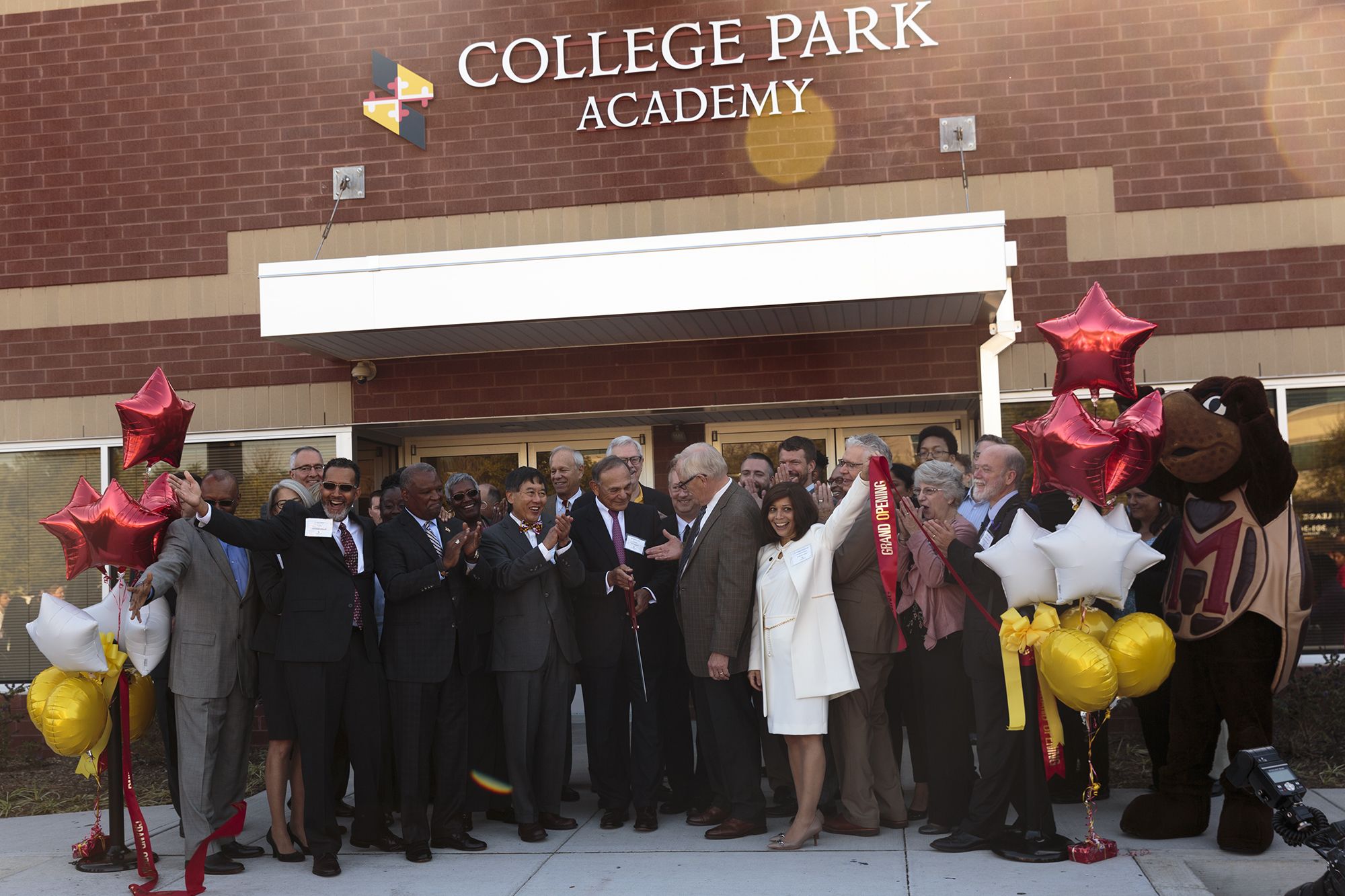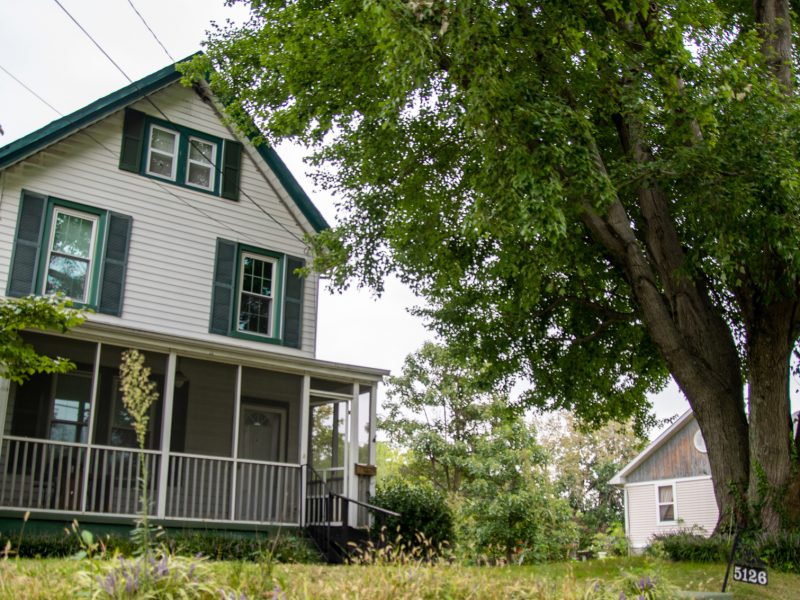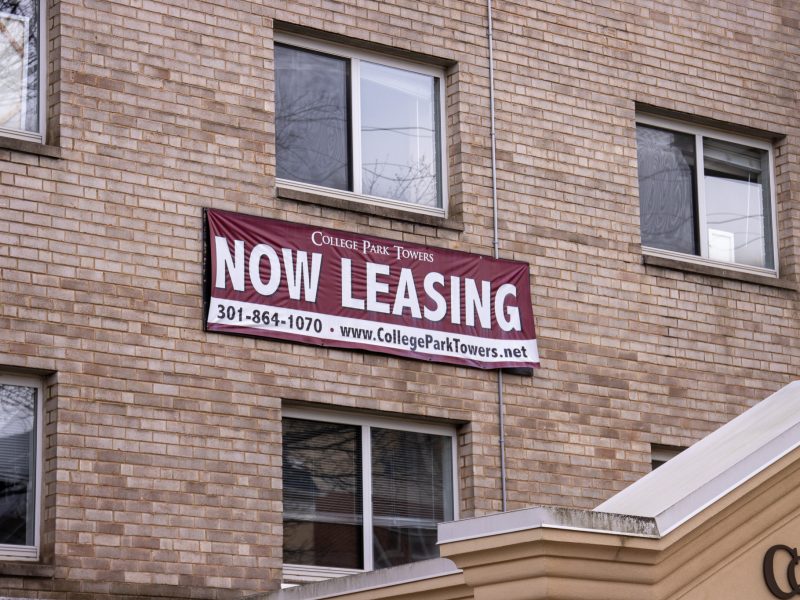During a public appearance at the College Park Academy last week, Maryland Gov. Larry Hogan announced his plans to increase funding for the academy and other charter schools like it across the state.
The governor, who was joined at the school by University of Maryland President Wallace Loh on Jan. 23, shared details of his budget for the 2020 fiscal year, in which he will award $2.6 million for construction projects at charter schools and another $1.2 million from the Healthy School Facility Fund to fix heating and air conditioning units in charters.
Duane Arbogast, the College Park Academy’s interim executive director, said this proposal is significant because, while the government provides public and charter schools alike with funding for operating costs, it limits capital funding — which pays for school buildings and their upkeep — to public schools.
This proposal, he said, will finally grant them the extra cash they need. Hogan’s proposal will award them more than $1 million for the College Park Academy — $1,600 for each of its 650 students — and will go toward paying its lease, as well as teacher salaries.
“The charter community is elated that he put forth this bill,” Arbogast said. “[We] have been asking for this for a long time.”
[Read more: UMD celebrates College Park Academy’s opening in Riverdale Park]
Hogan also announced during the press conference the Public Charter School Facility Fund Act of 2019, a move that will award every charter school in the state $1,600 in funding per student. Officials at the College Park Academy see this proposal as recognition of the lack of funding toward charter schools.
Unlike traditional public schools, which are divided up into districts by the state government and monitored by a school board of elected leaders, charters are independently operated and often establish their own learning curriculum. But while charters face less government oversight, they also have received less government funding in the past.
The College Park Academy opened in 2013 and relocated to the Discovery District in 2017. The school now serves a blended curriculum — which allows for both online and in-class learning — to more than 650 middle and high school students through 11th grade, with plans to add a 12th grade soon.
According to a report from the National Alliance for Public Charter Schools, there were 49 charters operating in Maryland for the 2016-17 academic year, and 23,500 students enrolled.
[Read more: College Park Academy will move to the University of Maryland’s Discovery District next year]
Hogan said that charter schools have historically faced low funding for facility upkeep, which this new act will rectify.
“Our announcement today seeks to correct that problem,” he said, “by giving charters access to much-needed facility funding to ensure that more children receive the opportunity to learn in modern facilities.”
The governor’s proposal comes in the wake of charter schools shuttering throughout the state. In Baltimore City, five charter schools were recently voted by school board members to close because of extremely low academic performance — among them the Monarch Academy — which supporters passionately protested because of its value to lower-income minority students.
Campbell Scribner, an assistant professor of education at this university, sees Hogan’s proposal differently. Increasing the amount of money for charter schools will not increase academic achievement, he said, because “in aggregate, charter schools do not outperform public schools.”
“It’s very hard in most cases to increase educational achievement,” he said. “Even if you had different government structure, even if you had more money to offer, it’s harder to make a difference. … [And] I don’t think charter schools have some magic formula where they are going to make a change.”
Hogan’s budget proposal, as well as the Public Charter School Facility Fund Act, must pass the General Assembly during its session this year to be enacted.
Arbogast is confident the bill will have a positive impact on charter schools if it passes, which he said would increase the quality of public education in the state.
“Charter schools are public schools,” he said. “When we invest in public schools, the outcomes for society are better.”



